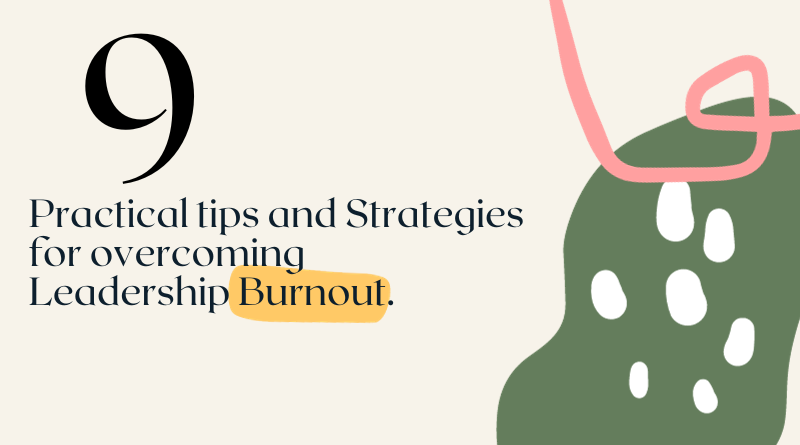Is Stress Killing Your Leadership Mojo? Discover How to Reclaim It Now!
Leadership, while immensely rewarding, can also be a breeding ground for stress and burnout. The relentless pressure to perform, constant decision-making, and the weight of responsibility can take a toll on even the most resilient leaders.
In today’s fast-paced business environment, it’s crucial for leaders to recognize the signs of burnout and adopt effective strategies to manage stress.
This blog post offers practical tips and strategies for overcoming leadership burnout, helping you to stay energized, focused, and effective in your role.
Recognize the Signs of Burnout
Burnout doesn’t happen overnight. It’s a gradual process, often unnoticed until it’s too late. Common signs include chronic fatigue, irritability, detachment from your work, and a decline in performance. As a leader, it’s important to stay attuned to these symptoms, both in yourself and your team members.
Create a Supportive Network
Establishing a strong support network is one of the most effective ways to combat burnout. This could be mentors, peers, or a professional coach who understands the unique challenges of leadership. Sharing experiences and seeking advice can provide fresh perspectives and emotional relief.
Set Boundaries and Prioritize Self-Care
In a world where being constantly connected is the norm, setting boundaries is vital. Allocate specific times for checking emails and messages, and make sure to disconnect completely during your personal time. Prioritize self-care activities like exercise, meditation, or hobbies that rejuvenate you. Remember, taking care of yourself isn’t selfish – it’s essential for maintaining your effectiveness as a leader.
Delegate and Empower Your Team
Delegation isn’t just about offloading tasks; it’s about empowering your team. By entrusting responsibilities to team members, you not only lighten your load but also boost their confidence and skills. This approach fosters a more collaborative and resilient team culture, where everyone feels valued and invested in the success of the organization.
Foster a Healthy Work-Life Balance
Encourage a culture that values work-life balance. Lead by example – if your team sees you overworking, they may feel pressured to do the same. Be open about the importance of taking breaks, using vacation time, and maintaining hobbies outside of work. A well-rounded life is key to avoiding burnout.
Embrace Mindfulness and Reflection
Mindfulness practices such as meditation or yoga can be incredibly beneficial in managing stress. They help in staying grounded and maintaining a clear perspective. Regular reflection on your goals, achievements, and challenges can also provide insights into managing your workload more effectively.
Seek Professional Help if Needed
In the journey of leadership, acknowledging when you need external support is a sign of strength, not weakness. If you find yourself overwhelmed by stress, consider seeking professional help.
Here’s why:
Expert Guidance: Therapists or counselors specializing in stress management can provide expert strategies tailored to your unique situation, helping you navigate challenges more effectively.
Unbiased Perspective: A professional offers an objective viewpoint, often bringing clarity to issues that may seem insurmountable. This outside perspective can be invaluable in finding solutions that you might not have considered.
Confidential Space: Speaking to a therapist provides a safe and confidential environment to express and explore your feelings without judgment or repercussions.
Remember, seeking help is a proactive step in taking control of your well-being and ensuring you remain a resilient and effective leader,
Stay Connected to Your Passion
Remember why you chose to be a leader in the first place. Reconnect with the aspects of your job that you love and find ways to bring more of those elements into your daily work. This can reignite your passion and motivation, serving as a powerful antidote to burnout.
Continuously Learn and Grow
Investing in personal and professional development can be incredibly revitalizing. Attend workshops, seminars, or webinars that interest you. Learning new skills or gaining new insights can invigorate your approach to leadership and provide a welcome distraction from the routine stresses of the job.
Conclusion
Leadership burnout is a significant issue, but it’s not insurmountable. Remember, being a strong leader also means taking care of yourself.
By adopting these strategies, you can maintain your health, happiness, and effectiveness as a leader, setting a positive example for those you lead.

